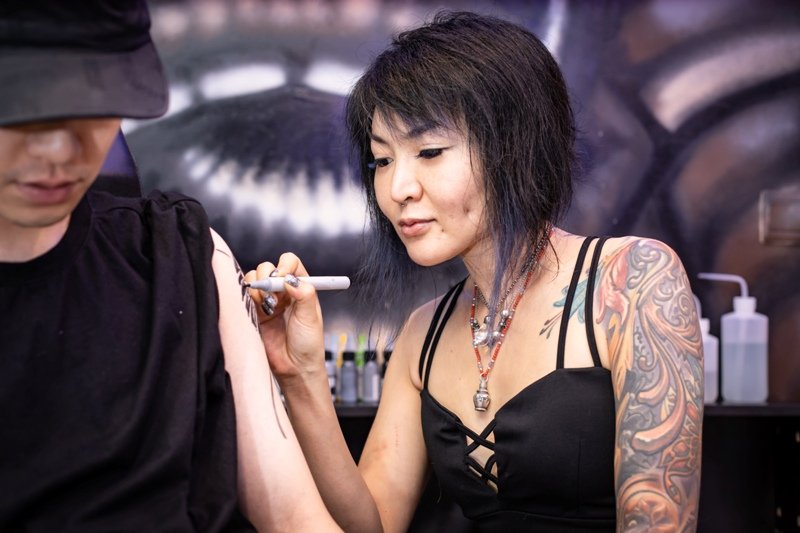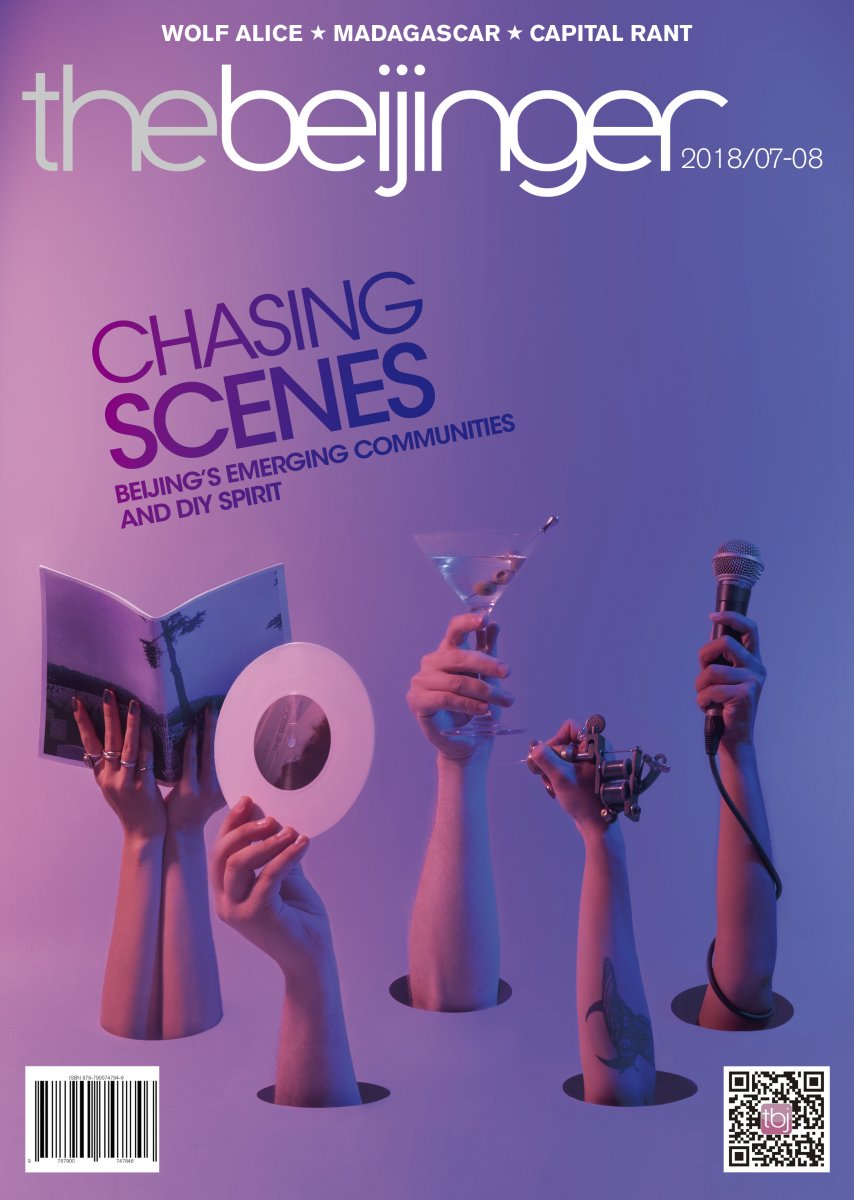Beijing Inked: Outlining the Pros and Cons of the Capital’s Growing Tattoo Scene
In a country whose government is frequently used as the archetype of unflinching control, the growing prevalence of conspicuous artistic self-expression provided by tattoos can often be unexpected. Yet China’s tattoo scene, having now shaken free its stigma and association with the “lower class” and organized crime, has been blossoming at an unprecedented pace over the past decade, fuelling a lucrative trade for China’s tapped-in youth but not one void of difficulties.
Speaking from Daybreak, a studio tucked away in the basement of an unassuming residential building near Chaoyang Joy City, American Anna Gale says that compared to the scene back home the biggest problem here is the lack of regulation: “If you were in the Western world this [space] would be called a ‘scratcher,’ which means you never apprenticed, somebody taught you in a basement, and you’re tattooing your friends for money without a license.” Because no such practicing permit exists in China, the art form remains in legal limbo – not cracked down on at street level but not recognized as a legitimate profession either. Gale, who is currently three months into her apprenticeship, says that no regulation means no standards for training, qualifications, and perhaps most worryingly, hygiene, a major issue if say “you get an ankle tattoo in the hutong and have to go to the bathroom afterward.”

Bateer, a young Inner Mongolian tattoo artist who co-opened his Qingmu Tattoo Studio in Chaowai Soho earlier this year echoes this point. He says that the lack of regulation means that “there is no way this industry will advance and achieve certain standards like there are in foreign countries,” adding that rather than a hindrance, a standardized assessment would weed out the con artists from the pros and inform purveyors and users alike “what it would take to operate a qualified tattoo studio.”
Another issue repeatedly raised by tattoo artists trying to make it in Beijing stems from the idea of originality. Credibility as a tattoo artist in the West largely relies on hard work, a solid business acumen, and most importantly, designing your own tattoos. However, copycats abound in a new scene like China’s, where people are willing to break the unwritten ethics of integrity either for a fast buck or because simply the weight of tradition here doesn’t bear down quite so heavy. One person who takes the idea of innovation very seriously is Jeanne Sun of Jeanne Tattoo Studio (pictured at top). A tattooist for 20 years, including 11 years in Europe, Jeanne has been working out of her Dada-adjacent shop for the past seven years and bemoans the Chinese clientele she often encounters, saying, “Almost 80 percent of people who come to me want to have something similar to someone else’s tattoo, their style, so I ask them: have you thought about the future? When a new style comes along, are you going to get your tattoo removed?” Rather than mindlessly repeating others creations, Jeanne states that it’s her mission “to help people to attain their dreams, kind of like a psychologist. People who want tattoos are people who kind of need something and I consider tattoos to be like therapy, a release.”

Part of this copy culture may also arise from the ways in which tattoo artists are taught. Josh Walden aka Black Rabbit Tattoos, who undertook his apprenticeship entirely in Chinese in Xi’an, says, “I feel China is much more orthodox – there is a sort of canon of artists, suitable tattoo themes, and locations and compositions that are studied during apprenticeship.” He adds, “Chinese artists are phenomenal and it is a shame they are not better known in the West but I would say people in the West are more apt to experiment radically with tattoo design, pushing the boundaries of what has ever been done in the art form. That also means that you need clients bold and daring enough to get such creative new designs.”
The imitation mindset is perhaps unsurprising given that the rise of modern tattoo culture in China has largely been driven by the visibility of inked Chinese and foreign sports stars, musicians, and actors – the young, attractive, and successful. It can also be viewed positively given that it has opened up the trade to many who may not have considered getting inked previously. At certain times, however, emulation of these celebrities, or at least of their skin, by fans looking for the next big trend has gone too far in the eyes of the Communist Party. A falling out with the growing influence of hip-hop led the government in January to crack down on “low-taste content” on TV, a catchall term for vulgar themes, rap sensibilities, and tattoos. When I ask Sun what her opinion is on this, she laughs before jibing, “maybe just banning TV would be better.”
The speed at which China’s tattoo scene has grown may not have allowed for a coherent community, standards of practice, or a comprehensive understanding of tattoo culture to congeal fully thus far. However, the dissemination and acceptance of ideas via social media and a firm embrace of the form by both the mainstream and those looking for a new mode for expression means that one thing is certain: a whole new generation of Chinese has fallen for ink, and much like calligraphy that came before it, this one too is indelibly here to stay.
More stories by this author here.
Email: tomarnstein@thebeijinger.com
WeChat: tenglish_
Photos: Uni You




